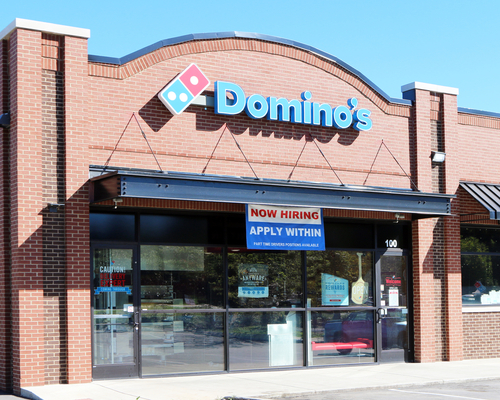Short answer
Domino’s is bad for you when consumed excessively. These products should not be part of a routine diet. Moreover, regular indulgence in this type of food will result in extremely poor health.
Long answer
Domino’s is one of the most widely recognized pizza delivery chains in the world. They boast that their quality toppings and real mozzarella cheese make their pizza the better option, but the nutritional “quality” of their pizza may not be regarded as healthy according to doctors and dieticians.
To get an idea of the overall nutrition of Domino’s, we can evaluate one slice of large cheese pizza, which is typically the base for all other pizzas. One hand tossed slice includes 290 calories, 11 grams of fat, 25 milligrams of cholesterol, and 640 milligrams of sodium.
The calories in a slice of cheese pizza make up about 15% of your daily recommended caloric intake. Americans should consume approximately 44 to 78 grams of fat per day, meaning Domino’s will provide about 14% to 25% of your daily-recommended intake, with just one slice. Healthy adults should not consume more than 300 milligrams of cholesterol per day, and one slice would include 8% of that value. Sodium makes the biggest impact, providing about 28% of your 2,300 milligram per day limit.
A diet that is high in sodium puts you at significant risk for conditions like high blood pressure, heart attack, or stroke. Indulging in more than one slice of Domino’s pizza frequently can easily cause obesity or cardiovascular related conditions.
It is important to note that these values do not include additional toppings like meat and veggies, which will also increase calories, fat, cholesterol, and sodium. Likewise, these values do not include sides, dipping sauces, desserts, or beverages included with your meal. When consuming Domino’s, it is wise to indulge in only one or two pieces that have minimal toppings. Stay away from options that have a lot of meat toppings or extra cheese, as these will make the most impact.
Gluten is another ingredient found in traditional pizza that poses a risk to the body. Celiac disease, an auto-immune disorder centered around the gut, adversely affects the way the body absorbs and processes food. Other non-celiac gluten sensitivities may still occur, and severe cases may include irritable bowel syndrome (IBS) and fibromyalgia. Domino’s offers gluten-free pizza, and has the following disclaimer on their website:
“Domino's pizza made with a Gluten Free Crust is prepared in a common kitchen with the risk of gluten exposure. Therefore, Domino's DOES NOT recommend this pizza for customers with celiac disease. Customers with gluten sensitivities should exercise judgment in consuming this pizza.”
When in doubt, it is always helpful to make your own pizza at home where you have control over the ingredients, and can take advantage of whole-wheat pizza dough, or fresh vegetable toppings. Flatbreads or vegetable-based doughs are great alternatives, as well. Indulging in Domino’s pizza on occasion will not cause any drastic harm, but it should not be a ‘go-to’ regular meal.
Possible short-term side effects
- bloating
- headache
- swelling (from high sodium levels)
- dehydration (from high sodium levels)
Possible long-term side effects
- heart disease
- hypertension
- irritable bowel syndrome
- obesity
Ingredients to be aware of
- additional cheese
- excess fat
- excess sodium
- gluten
- meat toppings
- dough conditioners

Healthier alternatives
- flatbreads
- homemade pizza with whole wheat dough
- pita pocket bread pizzas
- mushroom cap pizza
- pizza toppings on eggplant slices or other vegetables
 Approved by
Approved by 















